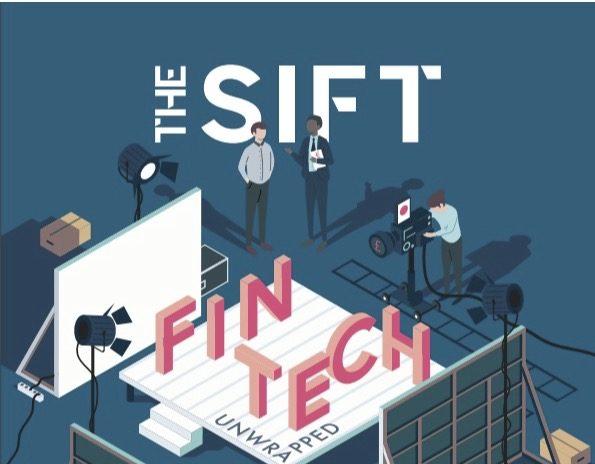The global pandemic has forced citizens and businesses to embrace digital financial services at unprecedented speed, laying the foundations for a new era in fintech.
During the last European and North American pandemic, the telephone came into its own for those who could afford it. But as Spanish flu spread, so many telephone operators became ill from working in close proximity that their companies pleaded with customers to only make emergency calls.
Fast forward to today’s pandemic, and our digital telecommunications infrastructure has been our saving grace, allowing millions of people to continue socialising, albeit at a distance, and helping to avert a complete shutdown. Any business that had so far failed to digitise had to remedy that sharply. Companies pushed through years of digital transition in a matter of weeks as they shifted to distributed work.
“We saw all the trends underway before Covid-19,” Michele Foradori, an investment manager at European venture capital firm Blackfin Tech, tells The Sift. “The pandemic is accelerating them.” It has proven to be an opportunity, albeit under duress, to finally fix all of the inefficient manual and even paper-based processes that companies were still often stuck to. “You’d be surprised how many companies still have files full of different coloured papers in their offices, full of paid and unpaid invoices,” Foradori adds. “Suddenly companies see the value of digitisation.”
For the companies building software that improves financial management, the pandemic is a huge opportunity. In April alone, Likvido , the Copenhagen-based automated invoice collection startup, took on 300 more customers and doubled its revenue. “Our conversion rate from cold calls was 4% before the pandemic; now it’s 15%,” says chief executive Max Frimmer.
Digital invoicing is especially important at a time when many suppliers and partners are going bust, or are about to. French software company Sidetrade , which also digitises invoices and cash systems, claims that unpaid invoices owed to its clients have jumped by 97.6%, from 19.3% to 38.1%, making for its busiest period since the financial crisis.
Software companies are adapting their own offerings, and pricing, to support rapid adoption. In March, Sidetrade launched a free cash control service for new clients that will operate until the end of June.
“Typically, it takes 12 to 16 weeks to implement our systems with clients; we created one without the bells and whistles in one week,” says David Turner, chief marketing officer. Once clients digitise, Turner says, they never go back. If a system is easier, faster and cheaper to operate than one that relies on vast quantities of paper, no one will revert to their old ways.
Consumers, too, are quickly shifting their behaviours and moving deeper into digital. Their relationship with cards is changing, with reluctance to use shared chip-and-pin terminals driving an increase in contactless payments. At SumUp , the London-based software company that digitises payments for SMEs that are reliant on cash payments, vice president for Europe Alexander von Schirmeister has seen a noticeable trend. In France, contactless payments have gone from 46% of all card payments to nearly 60% since the start of the lockdown, he tells The Sift.
In Germany, the use of contactless payments has jumped after supermarkets and chemists began asking people to pay by card if possible. Major retailers and small grocery stores have done the same, and even cash-loving German consumers are switching to cards.
The trend is global. In early March, the World Health Organisation (WHO) advised against using physical cash and recommended making contactless payments to reduce virus transmission. Since then, use of cash has fallen dramatically — by as much as 90% in Spain. In the UK, at the beginning of lockdown ATM transactions were down by as much as 62% year on year, according to data from Link, which runs the UK’s cash machine network.
At home, more people are paying for goods and services online to be delivered directly. Research from Forrester shows 10% of consumers in Britain and 17% in Italy have used online banking, contactless payments and wallets for the first time since lockdowns began. Chime, a digital bank, has on-boarded record numbers of customers, while at Square, the US-based payments company, direct deposit volumes increased threefold between March and April.
“The speed of adoption of cashless payment technology has increased dramatically in just three months,” says Pär Hedberg, chief executive of Sting, the Swedish accelerator and incubator. “But we need to move faster now, to leapfrog over credit cards to touchless payment systems. ” Hedberg believes that the growth of e-gaming, entertainment and sports will accelerate the payment solution market more than the current surge in online retail and food delivery.
“Cards are a stepping-stone,” agrees Dr Francesc Rodriguez Tous, a lecturer in banking at Cass Business School. “It’s going to be more about online transactions in a cashless society, where there is no need for a card.” For most consumers, the phone is replacing the card. In Sweden, Swish, the bank-owned telephone banking app, has seen a rise in users from 7m to nearly 7.5m — which means that almost all of the Swedish population old enough to have a bank account is now on Swish. If we are using our phones more for banking, we’ll likely use them for other financial services too. The logic of having everything in one place in a single app, particularly at a time when life is exceptionally complicated, is proving a winning formula with consumers.
Even Asia, ahead of Europe when it comes to moving from cash to digital payments, thanks to the ‘super-app’ phenomena led by WeChat and Alipay, has seen this trend accelerate during the pandemic.
Consumer attitudes and retail patterns may be different, but the trend towards consolidating everything financial in one place may follow here.
All together now
Thanks to open banking regulations, there is already a community of startups helping users consolidate their financial lives. London-based PensionBee, for instance, transfers old pensions into a single online repository. Wealth management and robo-advisory platforms can provide detailed savings projections and even guide consumers about how much they need to put away to meet specific future spending goals. Startups like Nutmeg also pride themselves on far greater fee transparency compared to old-school retail investment platforms.
The need for clarity over our financial future, and tools that help us to save, are in growing demand during the current crisis. Young people are increasingly being helped to save more thanks to easy-to-use savings platforms. Stockholm-based Dreams, an app aimed at encouraging savings and investment, has seen an 11% jump in new users since March 1. Existing customers are also making more transactions, suggesting they are also saving more, says Henrik Rosvall, Dreams’ chief executive. “People who were saving for a kite surfing trip or yoga retreat last spring are now setting up buffers, putting money aside for their children.”
Tara Reeves, partner at Omers Ventures, thinks the pandemic will lead to a number of changes in the overall packaging of financial services. “Everyone is having a harder time financially since the pandemic, particularly those approaching retirement,” she says. “There are also signs that the bank of Mum and Dad is taking a knock.”
She predicts that mortgage lenders will have to change their products to appeal to people in changed circumstances. Gifts have been an important source of capital for the deposits of first-time buyers for some time —over the last five years, 61% of first-time buyers relied on help from their families. But with less family money available, Reeves expects more first-time buyers to buy with friends, and a ready market of apps offering and managing shared mortgages.
To her, one of the more surprising effects of the pandemic has been the surge in retail investment in stock markets. A report by the French stock market regulator showed that retail investors’ transaction volumes have increased four times since the start of the pandemic, with over €3.5bn net flowing into equities. Some 27% of French stock market investors were new to the market or previously inactive. New investors were 10-15 years younger than traditional investors and below 40 years on average.
Given this trend, however, it’s less surprising that low-cost investment fintechs, such as Nutmeg, Trade Republic and Freetrade have benefitted.
Trust premium
But this doesn’t mean paying for financial advice is about to come to an end, warn some commentators. This is particularly clear in conventional banking, although the message is relevant for other financial services. A recent survey by Forrester found that some customers are actually switching away from their digital banks back to their original bank. “In difficult times, who are you going to trust?” asks Forrester analyst Jacob Morgan. “You’ll trust a bank that has been around for 200 years.” When it comes to protecting personal data, most individuals trust their bank more than any organisation other than their employer.
With uncertainty comes a greater need for advice, argues Johan Näs, managing director and partner at Boston Consulting Group’s Stockholm office. It’s too soon to write off the banks, he says, and several seem to be doing well in the pandemic, particularly those who innovated and invested in their customer service. One thing is clear: the pandemic is driving the expectations and needs of consumers ever deeper into the digital realm, unlocking a huge fintech market opportunity for the companies best positioned to compete.
This article appeared in The Sift, Sifted’s special report on fintech.





